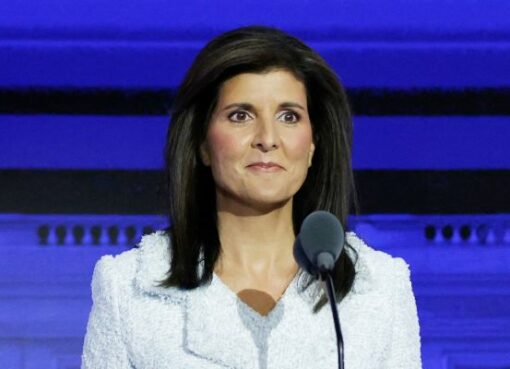When it comes to beauty and inspiration, who are the most stunning African American women that come to mind? From captivating black beauties to breathtaking ebony ladies and dazzling black celebrities, the world is filled with remarkable women who have left an indelible mark on history. But who are they, and what makes them so incredibly beautiful?
Join us as we celebrate the radiance and influence of the most beautiful black women who have not only graced our screens and stages but have also paved the way for change. These iconic figures have not only redefined conventional beauty standards but have also challenged common beliefs, proving that true beauty encompasses grace, power, and resilience.
Key Takeaways:
Page Contents
- 1 Josephine Baker – A Trailblazer in Performance and Activism
- 2 Oprah Winfrey – Media Mogul and Philanthropist
- 3 Mae Jemison – Trailblazer in Space Exploration
- 4 Shirley Chisholm – Political Pioneer
- 5 Bessie Coleman – Aviator and Barrier Breaker
- 6 Elizabeth Freeman – Champion of Freedom
- 7 Harriet Tubman – Abolitionist and Freedom Fighter
- 8 Ida B. Wells – Crusader for Justice
- 9 Rosa Parks – Mother of the Civil Rights Movement
- 10 Maya Angelou – Literary Icon and Activist
- Discover the groundbreaking achievements and enduring legacies of influential black women.
- Learn about their contributions to various fields, from entertainment and activism to science and politics.
- Gain insights into how these women have redefined beauty standards and inspired generations.
- Reflect on the importance of representation and empowerment in today’s society.
- Challenge conventional notions of beauty and embrace a more diverse and inclusive perspective.
Josephine Baker – A Trailblazer in Performance and Activism
Josephine Baker, a Vaudeville dancer who became a cultural icon, captivated audiences with her stunning performances and daring style. Her magnetic presence on stage made her one of the most iconic black women of her time.
“I wasn’t naked. I simply didn’t have any clothes on.” – Josephine Baker
Baker’s rise to fame was marked by her electrifying performances, which embraced sensuality, charisma, and a unique sense of artistry. As a vaudeville dancer, she dazzled audiences with her elaborate costumes and mesmerizing dance routines. She fearlessly challenged societal norms and redefined the boundaries of performance.
But Josephine Baker’s influence extended far beyond the stage. During World War II, she joined the French resistance and became a spy, using her fame to gather and transmit vital information. Her courageous acts of espionage solidified her position as an extraordinary trailblazer in both entertainment and activism.
Josephine Baker’s impact on art and society continues to resonate today. Her legacy as a performer, civil rights activist, and supporter of human rights paved the way for future generations. She remains an enduring symbol of strength, resilience, and elegance.
Oprah Winfrey – Media Mogul and Philanthropist
Oprah Winfrey’s journey from Miss Black Tennessee to the world’s first Black billionaire is a testament to her remarkable talent and unwavering determination. As a media mogul and philanthropist, she has used her platform to uplift others and create positive change in the world.
With her influential presence in the media industry, Oprah Winfrey has shattered glass ceilings and overcome countless obstacles to become one of the most powerful women in the world. Her talk show, “The Oprah Winfrey Show,” became an iconic source of inspiration and empowerment, showcasing her ability to connect with audiences and spark meaningful conversations.
Beyond her success in television, Oprah Winfrey has proven to be a force for change in philanthropy. Through her foundation, the Oprah Winfrey Charitable Foundation, she has dedicated herself to various causes, including education, healthcare, and women’s empowerment. Her generosity and commitment to making a difference have impacted countless lives and inspired others to follow in her footsteps.
“You have to find what sparks a light in you so that you, in your own way, can illuminate the world.”
As one of the most influential black women in the world, Oprah Winfrey has used her platform to amplify diverse voices and shed light on important social issues. She has paved the way for others in the media industry, proving that representation matters and that there is power in using one’s voice for positive change.
Oprah Winfrey’s Philanthropic Endeavors
| Initiative | Description |
|---|---|
| Oprah Winfrey Leadership Academy | A girls’ boarding school in South Africa providing quality education to disadvantaged young women. |
| Oprah’s Angel Network | A foundation focused on providing support to various charitable organizations and initiatives. |
| Oprah Winfrey Scholars Program | A scholarship program supporting students pursuing higher education. |
| Oprah Winfrey Network (OWN) | A television network created by Oprah Winfrey showcases programming that promotes personal growth and positivity. |
Through her philanthropic endeavors, Oprah Winfrey has demonstrated her unwavering commitment to creating a better world. Her influence extends far beyond the media landscape, as she continues to inspire individuals from all walks of life to embrace their purpose and make a meaningful impact.
Mae Jemison – Trailblazer in Space Exploration
Mae Jemison, the first Black woman to travel to space, defied all odds and shattered barriers as an astronaut. Her extraordinary achievements and groundbreaking contributions to scientific research continue to inspire generations.
As a trailblazer in space exploration, Jemison’s journey into the cosmos was not only a personal triumph but also a powerful symbol of representation and inclusivity. Her groundbreaking mission paved the way for future generations of astronauts and demonstrated the limitless potential of diversity in science and exploration.
Breaking Barriers and Inspiring Generations
Before embarking on her historic space journey, Mae Jemison had already established an impressive track record in science and academia. In addition to being a physician, she held a bachelor’s degree in chemical engineering and a doctorate in medicine.
“The journey to space for me has always been about increasing access and eliminating barriers.”
Jemison’s passion for promoting inclusivity and accessibility in STEM fields spurred her to co-found The Earth We Share, an international science camp aimed at nurturing young minds and fostering a love for science. She firmly believed that education and representation were key to empowering underrepresented communities.
Contributions to Scientific Research
During her astronaut career, Jemison conducted valuable experiments and contributed to numerous scientific research projects. Her expertise in life sciences and biomedical research made her a valuable asset to NASA and the scientific community at large.
Jemison’s pioneering spirit and groundbreaking achievements have left a lasting legacy. She serves as an inspiration to aspiring astronauts, women of color, and anyone who dares to defy boundaries and reach for the stars.
Acknowledging Mae Jemison’s Impact
| Key Contributions | Impact |
|---|---|
| First Black woman to travel to space | Inspired future generations of astronauts, particularly women and people of color, to pursue careers in space exploration. |
| Advocacy for inclusivity and representation in STEM | Paved the way for increased diversity in scientific fields and encouraged underrepresented communities to pursue careers in science. |
| Conducted valuable experiments and contributed to scientific research | Expanded our understanding of life sciences and biomedical research, advancing our knowledge in these critical domains. |
Through her achievements and dedication to promoting inclusivity and scientific exploration, Mae Jemison has become a true icon in the field of space travel. Her impact on history and her continued advocacy for diversity serve as an inspiration for generations to come.
Shirley Chisholm – Political Pioneer
Shirley Chisholm, the remarkable trailblazer, made history as the first Black woman to be elected to the United States Congress. Her groundbreaking achievement shattered barriers and paved the way for future generations of women in politics.
But Chisholm’s trailblazing spirit didn’t stop there. In 1972, she became the first woman to seek the Democratic Party’s presidential nomination, cementing her status as a fearless leader and an inspiration to many.
Chisholm’s commitment to equality remains an enduring legacy. She advocated for civil rights, gender equality, and social justice, consistently challenging the status quo and fighting for the underrepresented.
According to Chisholm, “If they don’t give you a seat at the table, bring a folding chair.” This powerful quote reflects her determination to create change and her refusal to accept limitations.
“If they don’t give you a seat at the table, bring a folding chair.” – Shirley Chisholm
Shirley Chisholm’s impact on American politics continues to inspire and empower. Through her courage, resilience, and unwavering commitment to justice, she blazed a path for future generations and remains an influential figure in the fight for equality.
| Accomplishments | Year |
|---|---|
| First Black woman elected to the United States Congress | 1968 |
| First woman to seek the Democratic Party’s presidential nomination | 1972 |
| Advocated for civil rights and gender equality | – |
| Challenged the status quo and fought for the underrepresented | – |
Bessie Coleman – Aviator and Barrier Breaker
Bessie Coleman, the first Black woman pilot and aviation pioneer, soared above the limitations of her time, breaking racial and gender barriers in the world of aviation. Born in 1892 in Atlanta, Texas, Coleman’s passion for flying ignited at an early age, but she faced numerous obstacles on her journey to the skies.
Denied admission to flight schools in the United States due to discrimination, Coleman pursued her dreams abroad. She traveled to France and enrolled in the École d’Aviation des Frères Caudron, becoming the first African American woman to receive an international pilot’s license.
“The air is the only place free from prejudice,” Coleman once said, highlighting the freedom and equality she found in the sky. Her bold accomplishments not only inspired aspiring aviators but also challenged prevailing racial prejudices and gender norms of the time.
Bessie Coleman’s groundbreaking achievements paved the way for Black women and other marginalized communities in the aviation industry. Her tenacity and determination continue to inspire us to reach for the skies and defy the limits society places upon us.
Unfortunately, Coleman’s life was tragically cut short at the age of 34 when she died in a plane crash during a rehearsal for an airshow. Despite her untimely death, her legacy lives on as an enduring symbol of courage, perseverance, and trailblazing spirit.
Bessie Coleman’s Achievements:
| First Black Woman Pilot | Breaking barriers and opening doors for future generations of aviators. |
|---|---|
| Aviation Pioneer | Trailblazing a path in a male-dominated industry and inspiring others to follow their dreams. |
| Daring Spirit | Overcoming racial and gender discrimination to achieve her goals, proving that the sky has no limits. |
Even though Bessie Coleman’s time in the sky was tragically short, her impact on aviation and her legacy as a barrier-breaking pioneer will always be remembered. She serves as a constant reminder that determination and passion can defy all odds and inspire generations to come.
Elizabeth Freeman – Champion of Freedom
In the fight against slavery, Elizabeth Freeman, also known as Mum Bett, emerged as a courageous trailblazer who made history as the first African American enslaved woman to win a freedom suit. Her landmark court case had far-reaching implications and played a pivotal role in the abolition of slavery in Massachusetts.
Elizabeth Freeman’s story is a testament to the indomitable human spirit and unwavering pursuit of justice. Born into slavery in 1742, she endured years of oppression and mistreatment. However, her desire for freedom fueled her determination to challenge the institution that denied her basic human rights.
In 1780, Massachusetts enacted a state constitution that declared all men to be free and equal. Inspired by this newfound hope, Elizabeth Freeman, with the support of abolitionist lawyer Theodore Sedgwick, boldly took her case to court. She argued that the Constitution’s principles of equality and liberty applied to her as well.
“All men are born free and equal, and have certain natural, essential, and unalienable rights; among which may be reckoned the right of enjoying and defending their lives and liberties.”
Elizabeth Freeman’s compelling argument resonated with the court, and in 1781, she won her freedom. This landmark ruling not only affirmed her liberation but also set a precedent for future abolitionist efforts in Massachusetts.
The success of Elizabeth Freeman’s freedom suit paved the way for subsequent legal challenges against slavery and played a significant role in the gradual dismantling of oppressive institutions. Her courageous stand continues to inspire the ongoing fight for freedom and equality to this day.
Elizabeth Freeman’s Impact on Abolition
Elizabeth Freeman’s historic victory reverberated throughout the abolitionist movement, energizing activists and galvanizing support for a fundamental shift in societal norms.
| Key Contributions | Impact |
|---|---|
| First African American enslaved woman to win a freedom suit | – Symbol of hope and inspiration for enslaved individuals |
| Challenged the legitimacy of slavery based on constitutional principles | – Laid the groundwork for future legal battles against slavery |
| Set a precedent for equal rights and liberty under the law | – Influenced the gradual abolition of slavery in Massachusetts |
Elizabeth Freeman’s legacy as a champion of freedom endures, reminding us of the power of resilience and the capacity for change. Her unwavering pursuit of justice serves as a beacon of hope, inspiring us to fight against oppression and uphold the inherent dignity and equality of all individuals.
Harriet Tubman – Abolitionist and Freedom Fighter
Harriet Tubman, a courageous abolitionist and freedom fighter, played a pivotal role in the fight against slavery in the United States. Born into slavery herself, Tubman escaped bondage and dedicated her life to liberating others.
One of Tubman’s most remarkable achievements was her leadership in the Underground Railroad, a network of secret routes and safe houses that helped enslaved individuals escape to freedom. Tubman risked her life countless times, guiding hundreds of people to safety through treacherous terrain, using her intimate knowledge of the land and astute navigation skills.
Her relentless determination and unwavering commitment to justice earned Tubman the nickname “Moses” as she led her followers to freedom, much like the biblical figure. She once famously said, “I freed a thousand slaves. I could have freed a thousand more if only they knew they were slaves.”
“I freed a thousand slaves. I could have freed a thousand more if only they knew they were slaves.”
Tubman’s incredible bravery extended beyond the Underground Railroad. During the Civil War, she worked as a spy and nurse for the Union Army, gathering intelligence and aiding in the care of wounded soldiers. Her contributions to the war effort were recognized, and she became the first woman to lead an armed expedition in the war, guiding a group of Union soldiers in a successful raid that freed more than 700 enslaved individuals.
Despite facing grave danger and constant threats to her freedom, Tubman remained resolute in her mission to end slavery and fought tirelessly for the rights of African Americans. Her legacy as an abolitionist and freedom fighter continues to inspire generations, reminding us of the power of resilience, courage, and the pursuit of justice.
Harriet Tubman’s Impact:
- Leader of the Underground Railroad
- Guided hundreds of enslaved individuals to freedom
- Worked as a spy and nurse during the Civil War
- The first woman to lead an armed expedition in the war
- Symbol of strength, resilience, and the fight for equality
| Legacy | Quotes |
|---|---|
|
|
Ida B. Wells – Crusader for Justice
Ida B. Wells was not only an acclaimed journalist but also an influential civil rights activist who dedicated her life to fighting against racism and inequality. Through her tireless investigative work and fearless advocacy, Wells shed light on the dark history of racial violence and spearheaded the anti-lynching crusade.
Born into slavery in 1862, Ida B. Wells became the first to publish a public report on lynchings in the United States, exposing the brutal reality faced by African Americans. In her writing, she documented countless cases of injustice and challenged the prevailing narratives that perpetuated racial violence. Her groundbreaking work on lynching provided a vital foundation for the civil rights movement that followed.
Ida B. Wells once said, “The people must know before they can act, and there is no educator to compare with the press.”
As a journalist, Wells played a crucial role in amplifying the voices of marginalized communities and holding those in power accountable. She co-owned and edited the Memphis Free Speech and Headlight newspaper, fearlessly using it as a platform to expose the truth and advocate for basic human rights.
Wells’ activism extended beyond her writing. She co-founded the National Association of Colored Women and was a prominent member of the National Association for the Advancement of Colored People (NAACP), working alongside other civil rights leaders of her time.
Ida B. Wells’ Impact on Justice
Ida B. Wells’ achievements and contributions to the fight for justice cannot be overstated. Her fearless journalism and unwavering dedication helped elevate the struggle against racism and expose the systemic violence that African Americans faced.
Wells’ work on lynching opened the eyes of the nation and sparked important discussions on racial inequality and the urgent need for change. Her writings challenged the perception of African Americans as inferior and highlighted the urgent necessity for equal rights and protections.
Furthermore, Wells’ activism laid the groundwork for future civil rights movements by inspiring generations of activists, journalists, and advocates to continue the fight for justice. Her words and actions continue to resonate, reminding us of the importance of speaking truth to power and standing up against injustice.
Continuing the Legacy
Ida B. Wells’ contributions to the pursuit of justice continue to inspire us today. Her courage, determination, and relentless pursuit of truth serve as a reminder that change is possible through individual action and collective effort.
It is crucial to honor the legacy of Ida B. Wells by recognizing the ongoing challenges of racial inequality and working towards a more just and equitable society. By raising awareness, advocating for change, and promoting inclusivity, we can continue the unfinished work of this remarkable journalist and anti-lynching crusader.
Through her indomitable spirit and groundbreaking work, Ida B. Wells left an indelible mark on history and serves as a shining example of the power of journalism in the pursuit of justice.
Rosa Parks – Mother of the Civil Rights Movement
Rosa Parks often hailed as the Mother of the Civil Rights Movement played a pivotal role in challenging racial segregation and fighting for equality in the United States. Born on February 4, 1913, in Tuskegee, Alabama, Rosa Parks grew up in a racially segregated society where discrimination and inequality were deeply ingrained.
On December 1, 1955, Rosa Parks made history when she refused to give up her seat to a white passenger on a Montgomery city bus, as mandated by the Jim Crow laws. Her act of defiance and bravery sparked the Montgomery Bus Boycott, a year-long protest that catalyzed the modern civil rights movement.
With the leadership of prominent activists like Martin Luther King Jr., the Montgomery Bus Boycott galvanized the African American community, showcasing the power of nonviolent resistance against racial injustice. Despite facing threats and persecution, Rosa Parks remained resilient, and dedicated to the cause of equal rights for all.
“I would like to be remembered as a person who wanted to be free… so other people would also be free.” – Rosa Parks
Rosa Parks’ steadfast commitment to justice and her unwavering belief in the power of collective action continue to inspire generations fighting for equality. Her courageous act on that fateful day in Montgomery left an indelible mark in history and remains a symbol of strength, resilience, and the ongoing struggle for civil rights.
Rosa Parks’ Legacy and Impact
The actions of Rosa Parks and the subsequent Montgomery Bus Boycott set off a wave of change that reverberated far beyond the city limits of Montgomery. The boycott not only challenged segregation laws but also brought national attention to the plight of African Americans and their fight for equality.
Rosa Parks’ bravery inspired countless individuals to stand up against injustice, sparking a surge in activism and civil rights movements across the country. Her legacy serves as a powerful reminder that one person’s actions can have a significant impact on society and help shape the course of history.
The Importance of Civil Rights Activism
Rosa Parks’ story is a testament to the power of grassroots activism and peaceful resistance in the face of systemic oppression. Her courage in refusing to give in to segregation laws set an example for future generations and demonstrated the potential for change through collective action.
The civil rights movement that emerged from the Montgomery Bus Boycott paved the way for significant changes in American society, leading to the desegregation of public spaces, voting rights reforms, and the eventual dismantling of Jim Crow laws.
The Journey Towards Equality
Rosa Parks’ contribution to the civil rights movement and her tireless advocacy for equality serves as a reminder that the fight for social justice is an ongoing journey. While progress has been made, systemic racism and inequality persist in various forms.
It is our collective responsibility to continue the work started by Rosa Parks, ensuring that her legacy of courage and determination lives on. By actively challenging discriminatory practices, raising awareness, and working towards a more just and inclusive society, we honor the legacy of Rosa Parks and the countless others who fought for a better future.
Maya Angelou – Literary Icon and Activist
Maya Angelou, a renowned poet and civil rights activist, used her words to give voice to the African American experience. With her incredible talent and profound insights, she made a lasting impact on literature and society as a whole.
Angelou’s poetry has resonated with readers around the world, capturing the essence of love, pain, and resilience. Through her powerful storytelling, she shed light on the struggles and triumphs of the Black community, offering a unique perspective that challenged societal norms.
Not only was Angelou an accomplished poet, but she was also deeply involved in the civil rights movement. She worked alongside Martin Luther King Jr. and Malcolm X, using her influence to fight against racial injustice and promote equality for all. Her activism spanned decades, inspiring countless individuals to take a stand and demand change.
Also Read, Pam Tork, Brenda Vaccaro, and Axton Joseph.





